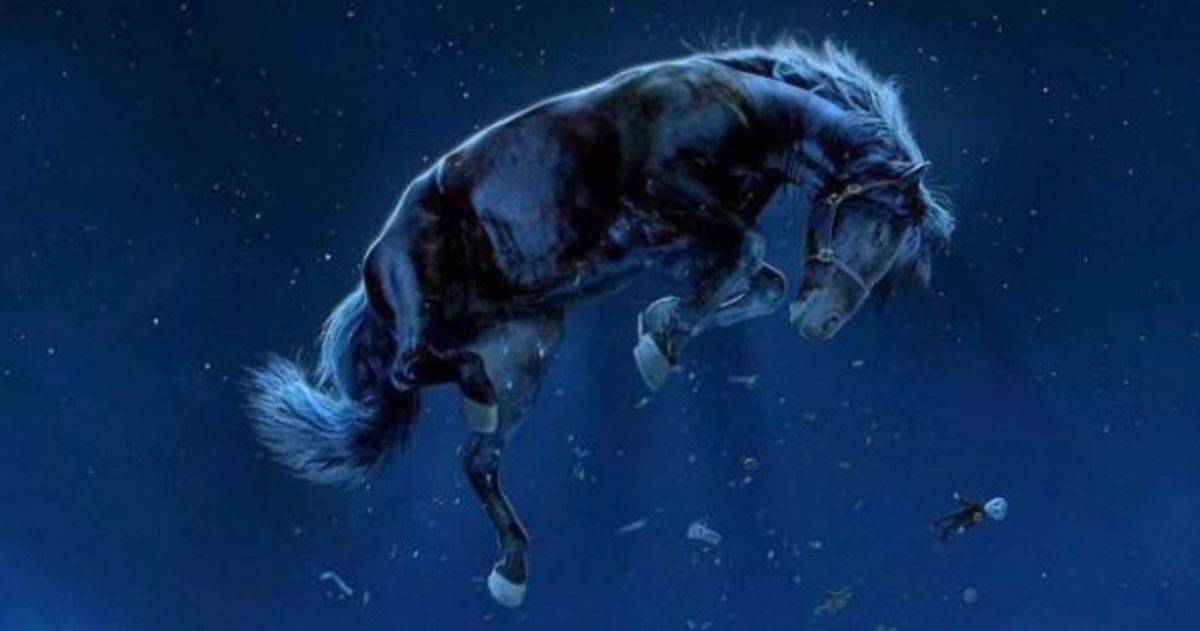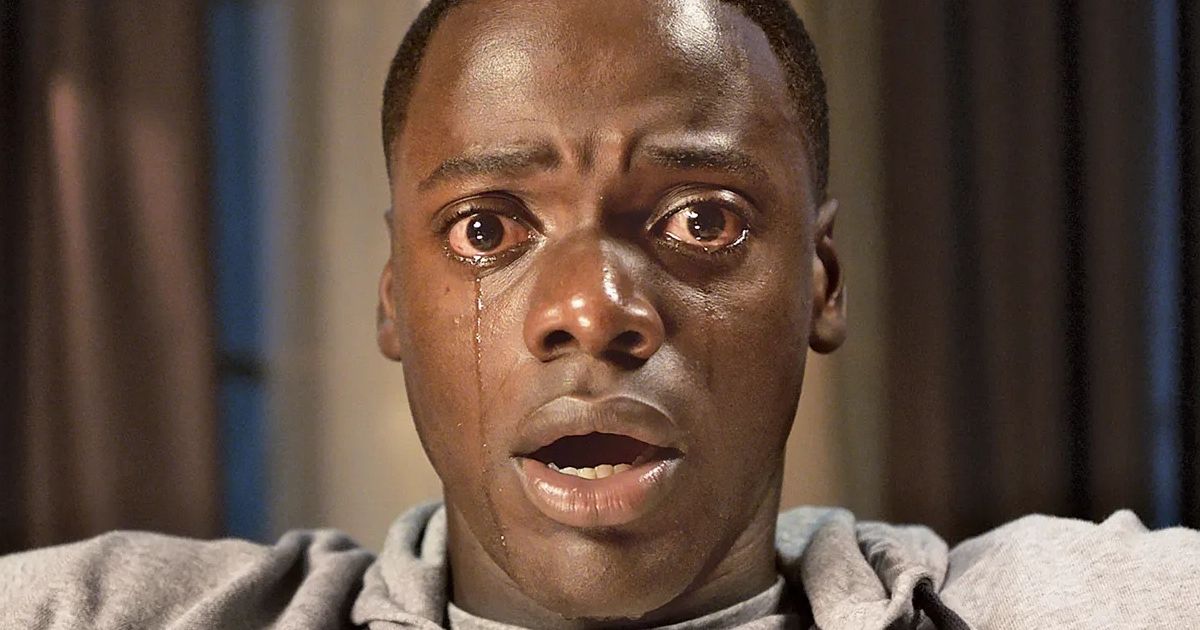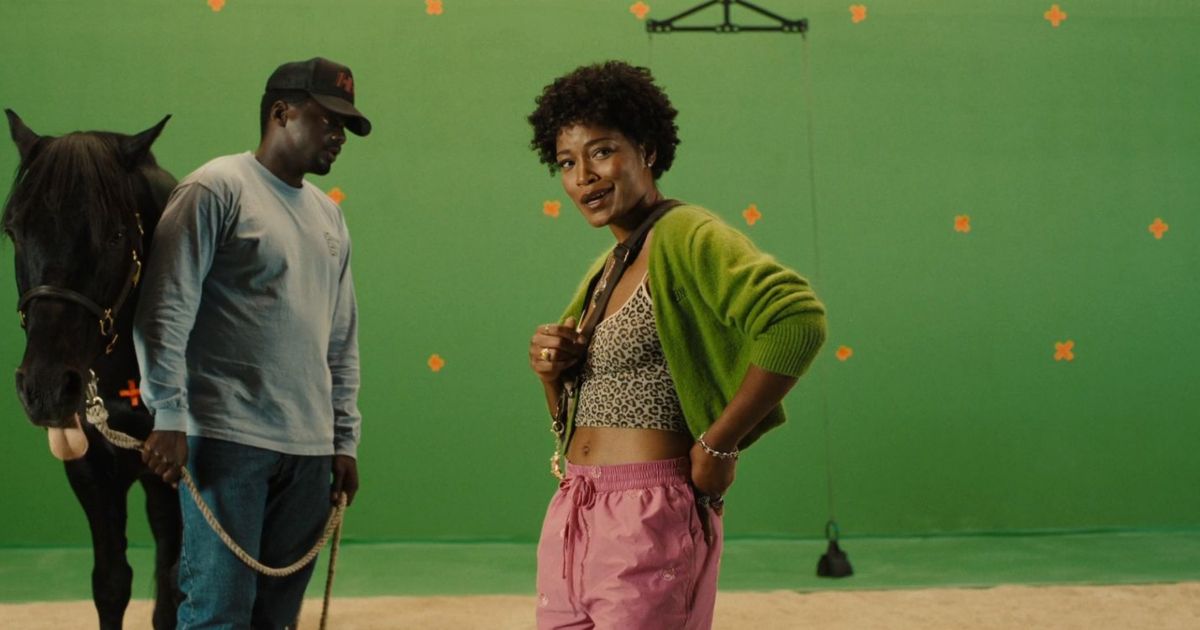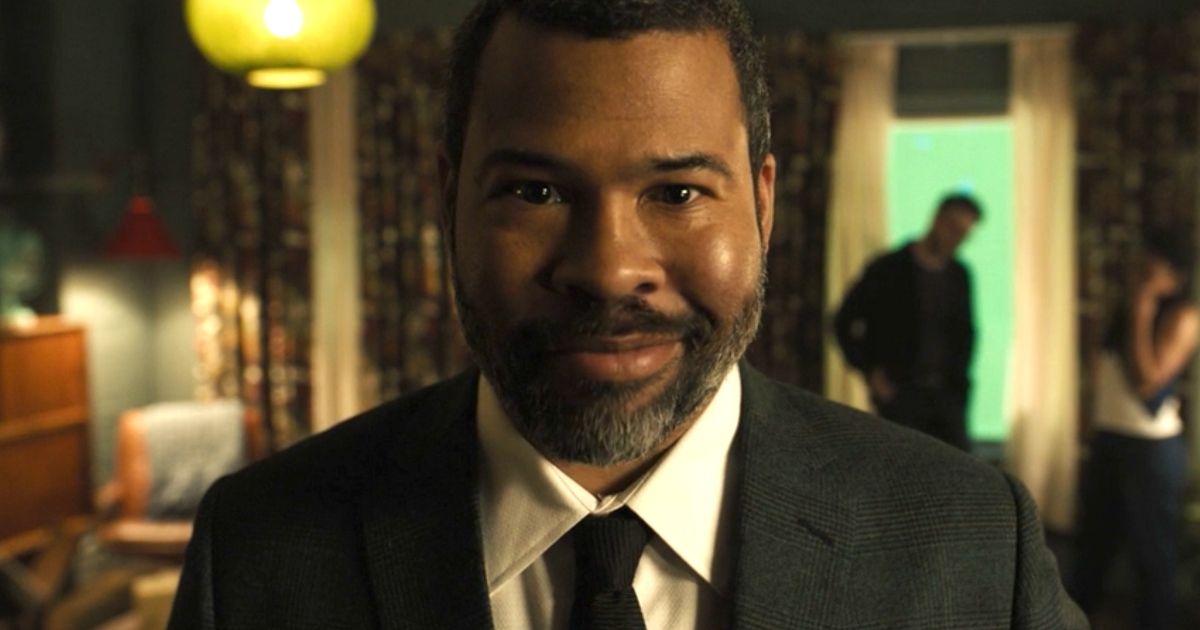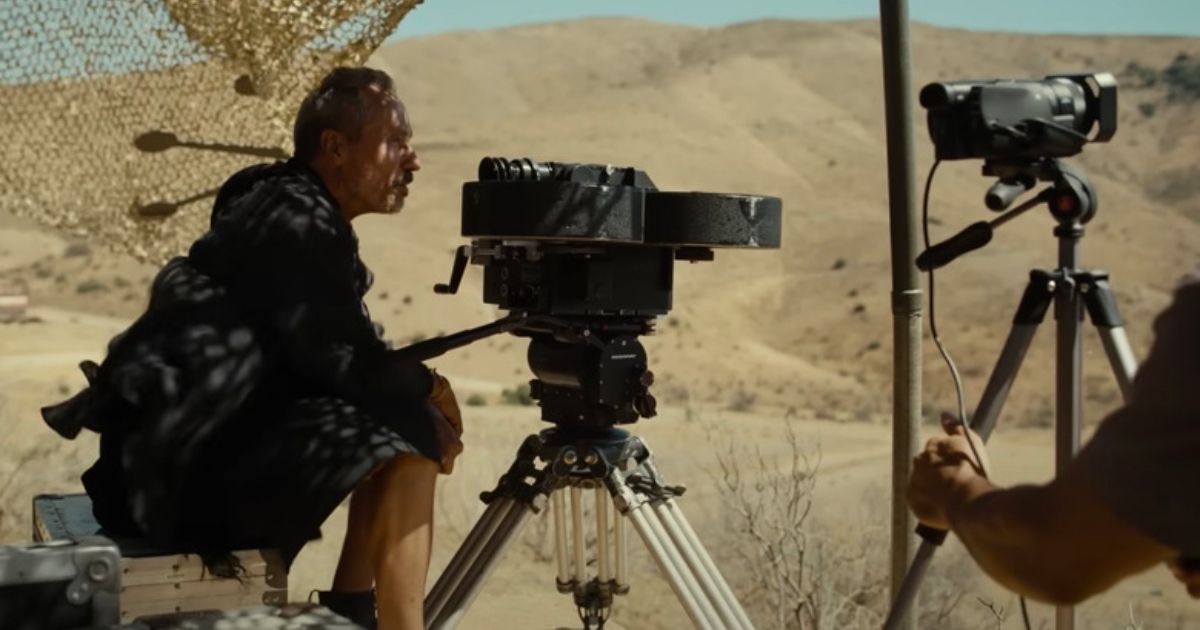This piece contains spoilers for Nope (2022)Nope, the latest feature from writer/director Jordan Peele following his fantastic double bill of Get Out and Us, has divided critics. Unlike his universally praised Get Out and his critically adored Us (and even his script for Candyman), Nope has gotten mixed reviews from both audiences and critics. Empire Magazine gave it a full five stars and called it, "An ambitious, provocative swing," while our own review countered by saying: "What was supposed to be ambitious and engaging quickly runs out of steam."
Revisiting Nope reveals a movie that is let down by two things: the weight of expectations, and the cryptic advertising that preceded a movie which was actually, at the end of the day, something extremely straightforward.
The Weight of the World on Peele's Shoulders
Nope is a movie about ranchers that supply their animals for film sets, whose land is regularly visited by a UFO. It is singular in its own vision to focus on that one element, but in contrast to Peele's other works, comes off as surface level and hollow. Both Get Out and Us told horror stories that used America's past and blatant current day racism to inseam its own scares; while Nope is not connected to these previous films, it cannot help but be compared.
It's hard to quite put into words just how big of an impact Get Out had when it was released in 2017. On a tiny budget of just under $5 million, the film made back over $250 million worldwide through word of mouth and its take on Black people in society through the guise of classic horror. Get Out made the Blumhouse company the efficient film factory that it is today and proved that Jordan Peele wasn't just the latter name of a comedy duo. The movie helped turn a new trend in the genre into a mainstream phenomenon, and multiple imitators arrived to jump on the bandwagon of this new wave of 'elevated horror.' By the following 2018, a white-suited Peele was on the stage of the 90th Oscars accepting an award for Best Original Screenplay for his film.
Nope, Nah, Nada
Whereas Get Out's Chris (Daniel Kaluuya) is an incredibly rounded and bright individual objectified into being an item purchasable by some white overlords, Nope's characters are underwritten, and when they do speak their idioms can come off as stereotypes, schtum and unremarkable. This isn't a knock on the actors whatsoever, and Kaluuya is a great performer, but the simple fact is that he's playing a quiet man (OJ Haywood) of few words and has little chance to really act.
Keke Palmer is the real talker here as Emerald Haywood - OJ's sister - but she's an underwritten character as well, using her gift of gab to promote herself and express little interest about anything else. When faced with the actual predator above them, her reactions and language feel a stark contrast to the quietness of her brother; to the point of the character feeling like only so far away from the exact stereotype Peele's work has managed to dispel in previous years (especially when you realize that Emerald's very first scene introduces her as someone with poor time management for a job role...). On the characters seeing the alien and opting not to interact whatsoever, sure, the film gets a laugh every time the word "nope" is uttered, but the dialogue overall is so few and far between to get past an irregular chuckle at its own smugness, that the script and its wording comes off as just misjudged.
Nope lacks the bigger picture storytelling that we have come to expect when the words "from Jordan Peele" are attached to something; while there might be thematic threads, it's difficult to gauge the greater questions here. Characters drop in and out of the story for a moment to then be randomly resurrected — only to be killed off! The Walking Dead's Steven Yeun plays Ricky 'Jupe' Park, a former child star and now owner of a Wild West-style theme park; he feels like he's a part of an entirely different film, and it maroons his story and the Haywoods' journey into feeling underdeveloped.
Peeleing Away the Layers
When Nope was first advertised, it arrived as a 30-second teaser giving zero information away. Mysterious and secretive, with next to no context, and with so little information on the film, the internet gradually began to clutch at the small amount of visuals they had been given and made wild assumptions (like a film focused on horses from outer space!).
Its marketing relied simply on that "from Jordan Peele" phrase; now such a force in original filmmaking, the advertisements relied on his name alone to suggest an interesting and wildly unique take on genre. Mystique is one thing, but to go in as vague a direction as they did and get back what Nope gave just leaves a misleading feeling.
Arguably, Nope isn't even a horror movie, more a sci-fi with horror elements, and not what we had come to expect from a man so associated with the genre (even when not in the director's chair and unrelated to his own trilogy, Peele has been involved in horror on the recent reimaginings of The Twilight Zone and Candyman). It's honestly barely a sci-fi movie; if anything, it's more of a movie movie.
As a result, Nope is a movie that loves movies. With regular nods to Close Encounters of the Third Kind and feeling like its own take on Shyamalan's Signs (a movie that, to a smaller minority, was also not very good), Nope is a film where filmmaking and the filmmaking process are intrinsically a part of its story. Security cameras guard the perimeter of the Haywoods' ranch on the lookout for aliens, only to be upended by bugs on the lens. The film also goes out of its way to express that the very first stuntman on a horse was a Black man, and OJ's costume for the finale is a crew hoodie directly from the set of The Scorpion King. It's just a shame that this nodding back to the past didn't result in a movie that developed more of its own identity.
Nope in Hindsight
Hindsight is something that has been very cruel to Nope, in that looking back on what little was advertised to us turned out to be un-scary hokum, and that it just wasn't as good as Peele's past work, which created massive expectations by being the most relevant voice of the horror genre.
But in closing, it's ironically the same sort of time that hindsight requires to thrive that might make Nope a better picture. Nope is something wholly original and an offshoot from the current age of blockbuster cookie-cutter drudge, and Warner Brothers' Stalin-esque erasure in a grasp for any and all loose change down the side of a very tired couch.
Uneven, Nope is a movie that feels like its director was given a blank check based solely on his previous (excellent) works and got vertigo when looking down from the top. Despite performing at the box office and currently having at least earned back twice its budget (with time in cinemas still left), Nope will be known as the weak end to Peele's opening trilogy of films.

